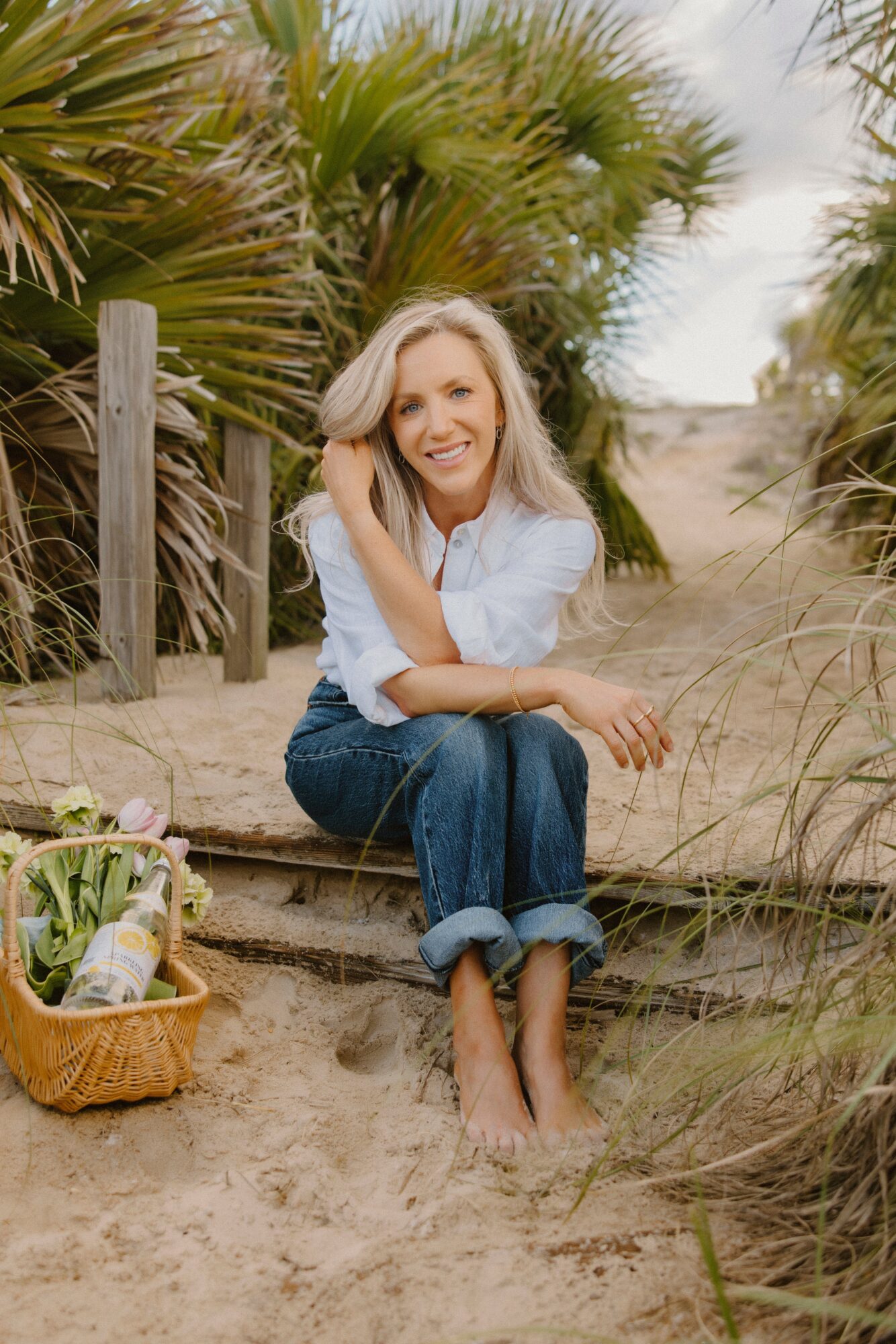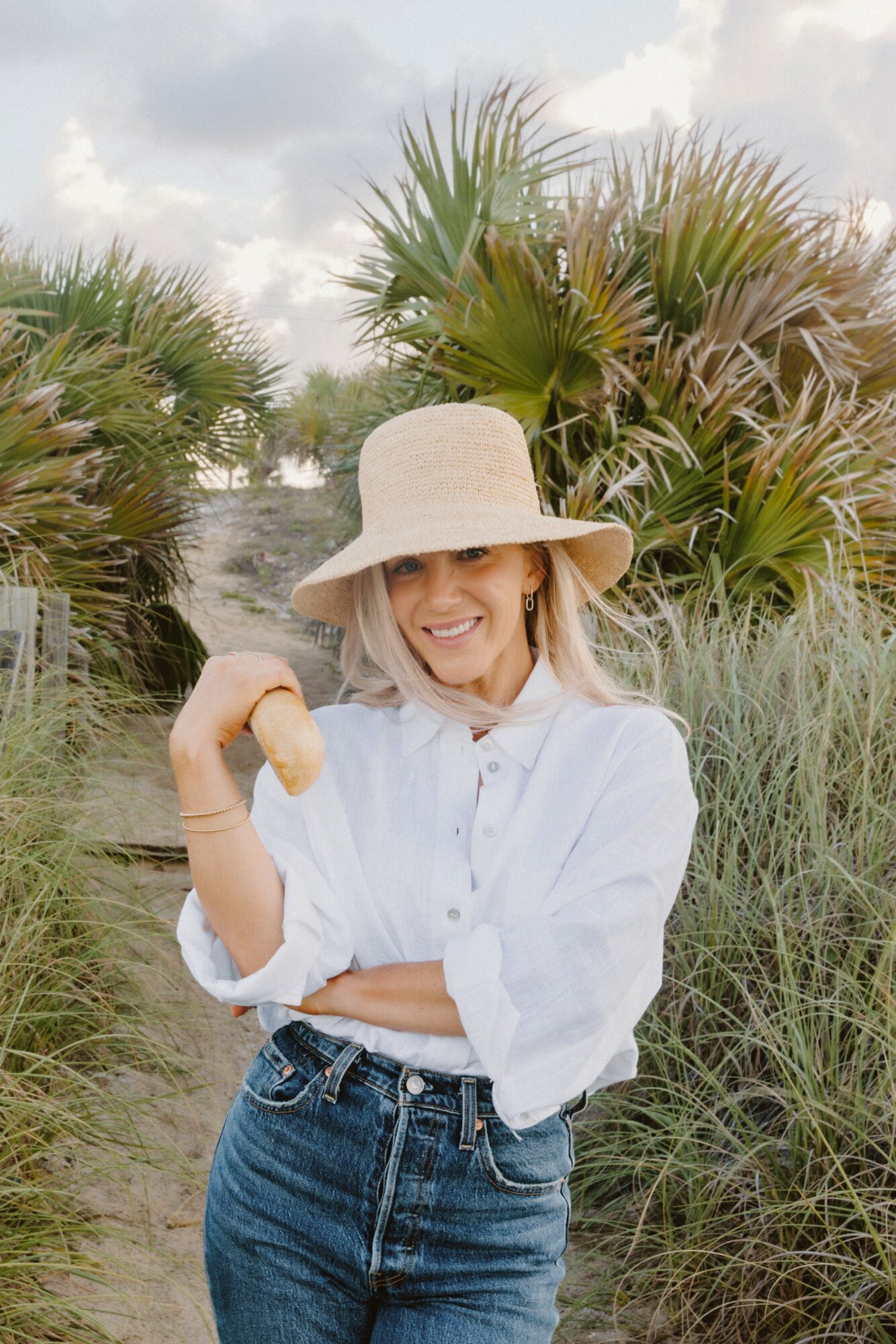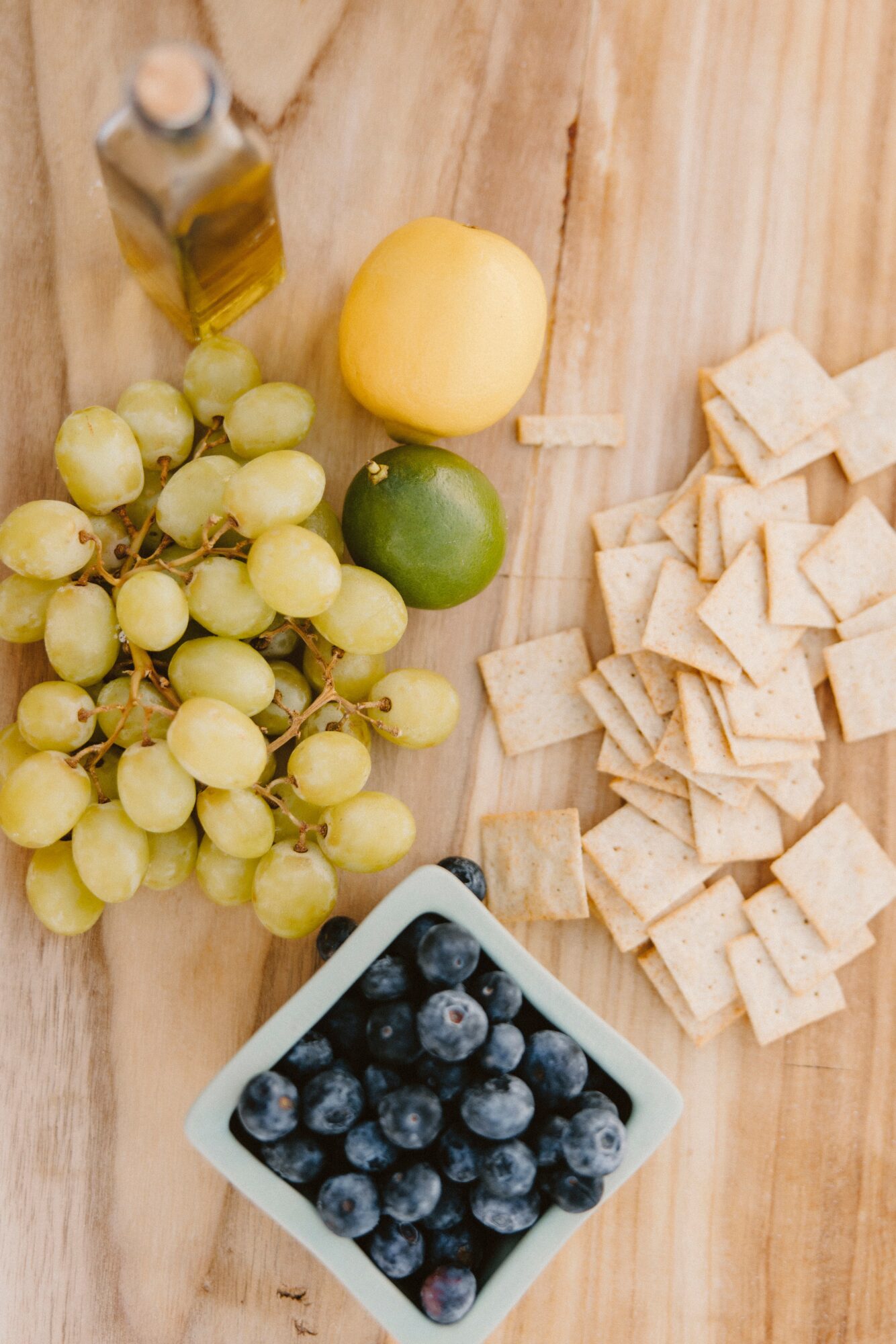

We’re looking forward to introducing you to Courtney Rushing. Check out our conversation below.
Courtney , really appreciate you sharing your stories and insights with us. The world would have so much more understanding and empathy if we all were a bit more open about our stories and how they have helped shaped our journey and worldview. Let’s jump in with a fun one: What do you think is misunderstood about your business?
Common misunderstandings about my business might be:
That I am just about weight loss.
Many people assume nutrition coaching = dieting to get smaller, when really my work is about metabolic health, balance, hormone regulation, sleep and stress recovery, and long-term sustainability. My goal is to empower people to understand nutrition, their bodies and eat more freely within a framework of their goals.
That my success with clients comes only from “food plans.”
I believe in teaching flexibility and balance, not prescribing strict meal plans. Food is more than a 7-day meal plan. Food is connection. culture, nourishment, and more. What I do is interpret labs, teach biofeedback awareness, coach on mindset and habit stacking, and guide behavior change—it’s not just handing someone a meal plan and saying “see ya!”
That my approach is about quick fixes.
My business is about sustainable, science-backed strategies—making food work with someone’s body, not against it.
That I am just a coach/influencer.
I hold a master’s degree in clinical nutrition, certifications in both perimenopause and menopause, and almost 10 years in this field. I currently am a CNS candidate and also pursing my LDN. My credibility is built on science and education, not trends or gimmicks.
Can you briefly introduce yourself and share what makes you or your brand unique?
I’m Courtney Rushing, a nutritionist with a Master’s degree in Clinical Nutrition, certifications in both perimenopause and menopause, and I’m currently working toward my CNS certification and LDN license. I also work part-time with Moves App, a fitness and nutrition platform that makes healthy living more approachable through proper resistance training, structure, and support. I’m passionate about helping people find a sustainable, individualized approach to food and fitness. Through my business, Rushing to the Kitchen, I guide clients in building a healthier relationship with nutrition.
What makes my work unique is that I go beyond rigid meal plans and one-size-fits-all diets. Instead, I focus on education, variety, and real-life strategies so clients can feel empowered, not restricted. I’m especially passionate about showing how whole foods, balance, and flexibility can transform energy, body composition, and overall well-being.
My own journey with nutrition — navigating challenges like stress and a lack of results — drives the work I do today. Right now, I’m excited to continue growing my resources that help people cut through the noise, learn the fundamentals, and actually enjoy the process of nourishing their bodies and training for longevity.
Appreciate your sharing that. Let’s talk about your life, growing up and some of topics and learnings around that. What’s a moment that really shaped how you see the world?
The moment that reshaped how I see the world wasn’t dramatic in the cinematic sense — it was quietly radical. For years I was stuck in diet culture: 1,000-calorie days, endless cardio, and the constant belief that less was always better. During my master’s training in clinical nutrition I made a deliberate change: I stopped starving myself, stopped the endless cardio, and started prioritizing real nourishment — more protein, adequate calories, and movement that supported rather than depleted me (hello strength training). Over weeks my energy returned, my body composition improved, and my mindset shifted.
That experience taught me two things: first, that the body is far more responsive to care than punishment; and second, that evidence and empathy must go hand-in-hand. It’s why I don’t sell quick fixes. I coach from a place of science and compassion — helping people rebuild metabolic health, trust their hunger cues, and create habits that actually last. That quiet personal turnaround is the foundation of everything I do.
Is there something you miss that no one else knows about?
Ironically, what I miss most are the days before social media. I know that’s a catch-22 given my career and how much I share online now, but truthfully, some of the best moments of my life were back in my childhood in Alabama. My “neighbors” were cows in the pasture, and life felt slower, simpler, and filled with peace, play, and family. There’s a freedom in that kind of simplicity that I think is often missing in today’s world. While I’m grateful for the connections and opportunities social media brings, I carry those roots of groundedness with me — they remind me to seek balance, offline as much as online.
I think our readers would appreciate hearing more about your values and what you think matters in life and career, etc. So our next question is along those lines. How do you differentiate between fads and real foundational shifts?
For me, it comes down to asking two questions: Does this approach have scientific backing? and Does it actually stand the test of time in real people’s lives? Fads are usually built on extremes, quick fixes, or rules that overcomplicate nutrition — they create a lot of hype but rarely long-term results. Foundational shifts, on the other hand, usually align with what we know from decades of research and clinical practice: things like prioritizing protein, eating more whole foods and fiber, balancing blood sugar, and finding sustainable ways to move your body.
Because I work one-on-one with clients every day, I get to see firsthand what truly supports health and what just adds noise. At the end of the day, the most powerful shifts are usually the simplest — and they focus less on restriction and more on building a foundation of balance, consistency, and confidence.
Before we go, we’d love to hear your thoughts on some longer-run, legacy type questions. What are you doing today that won’t pay off for 7–10 years?
Right now, I’m really investing in my health with the long game in mind. Strength training, prioritizing protein, managing stress, and supporting my hormones aren’t just about how I look or feel today — they’re about setting myself up for tomorrow.
For example, so many women aren’t educated on how much our daily choices in our 30s and 40s shape how we’ll experience perimenopause and menopause. Building muscle, maintaining metabolic health, and creating balance with food is like putting money in a savings account — you don’t see the payoff instantly, but years down the road, it can make the difference between struggling with symptoms or feeling strong, energized, and empowered.
That’s a huge part of what motivates me in my own life and in the work I do with clients: not just chasing short-term results, but preparing for longevity.
Contact Info:
- Website: https://rushingtothekitchen.com
- Instagram: https://www.instagram.com/rushingtothekitchen/






Image Credits
photo cred @goldendaysphotoco & @hello_miss_lovely













